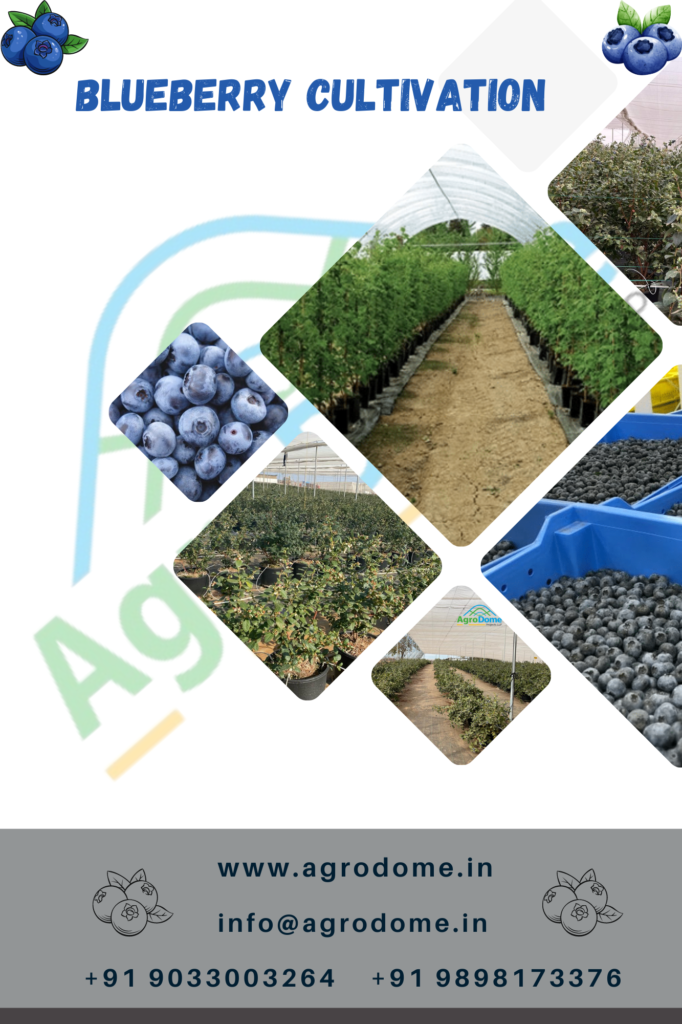Blueberry, also referred as Vaccinium myrtillus as scientific nomenclature thrives on very small shrubs, about 50 cm high, in light undergrowth with acidic soil. This plant is native to North America.
In contrast, cultivated blueberry shrubs can reach up to 2.50 m in height and produce larger fruits than their wild counterparts. Blueberry bushes require specific growing conditions; excessive wind, dryness, and alkaline soil can damage and weaken the crop.
Cultivating blueberry bushes in plastic greenhouses (tunnel type) with climate control technology and suitable soil or substrate promotes higher yield and better quality.
In the dynamic world of agriculture, blueberry farmers are always on the lookout for innovative methods to boost productivity, enhance fruit quality, and embrace sustainable farming practices. High tunnels have emerged as a revolutionary solution in blueberry cultivation, offering numerous benefits that help farmers overcome traditional challenges and seize new opportunities. This setup helps regulate temperature, humidity, and protects plants from adverse weather conditions. This comprehensive guide delves into how high tunnels can transform blueberry farming, driving higher yields and superior quality produce.
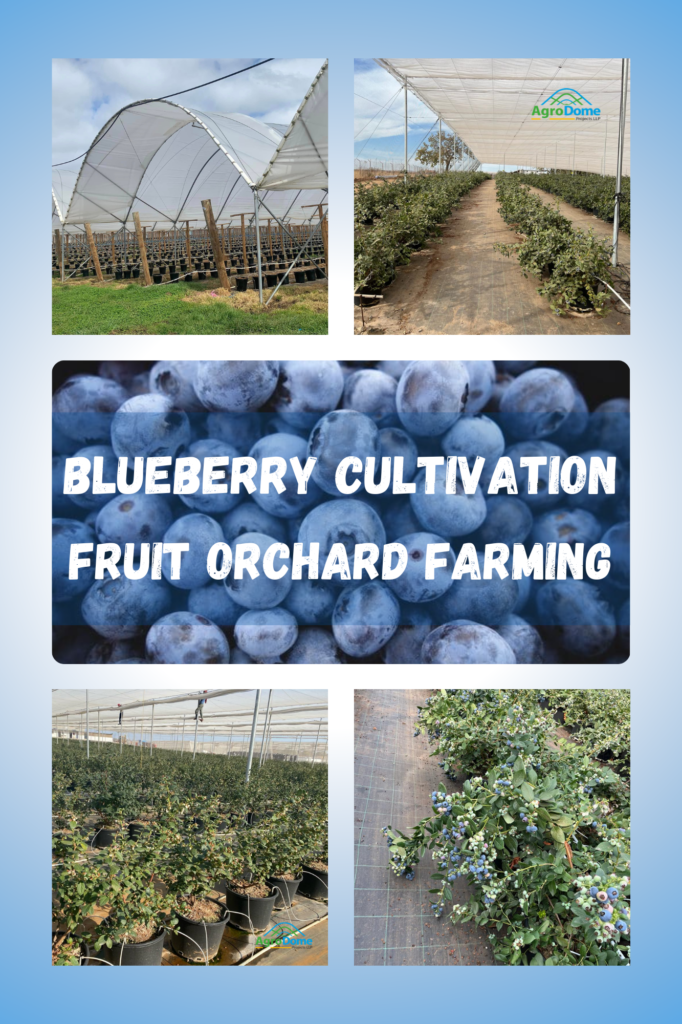
What Are High Tunnels?
High tunnels, also known as Poly houses or Hoop Houses, are unheated greenhouse structures covered with a single layer of polyethylene film. Unlike conventional greenhouses, high tunnels rely on natural solar heat and do not use artificial heating systems. They are designed to extend the growing season, protect crops from adverse weather, and create an optimal microclimate for plant growth. Growing blueberries in plastic greenhouses or high tunnels with climate control technology can enhance yield and quality.
Benefits of High Tunnels in Blueberry Farming
1. Climate Control
High tunnels provide essential protection against unpredictable weather conditions that can adversely affect blueberry crops. By moderating temperature, humidity, and wind exposure, high tunnels create a stable environment for blueberries. This protection is crucial during early spring and late fall when frost can damage blossoms and reduce yields. High tunnels shield plants from frost, allowing for earlier planting and later harvesting.
2. Extended Growing Season
A significant advantage of high tunnels is their ability to extend the growing season. Blueberries typically have a short growing window, but high tunnels can lengthen this period by several weeks. These structures enable farmers to start planting earlier in the spring and continue harvesting well into the fall, increasing the quantity of the harvest and meeting market demand for fresh blueberries over an extended period.
3. Enhanced Fruit Quality
The controlled environment within high tunnels promotes the production of higher quality blueberries. Consistent temperatures and protection from excessive rain and wind result in larger, sweeter, and more uniformly ripened berries. Reduced exposure to pests and diseases means fewer chemical pesticides are needed, resulting in cleaner, healthier fruit that meets organic standards more easily.
4. Efficient Water Management
Water management is critical in blueberry farming, and high tunnels help optimize its use. By reducing evaporation and runoff, high tunnels ensure that water is used more efficiently. Drip irrigation systems, which can be easily implemented in high tunnels, deliver water directly to the roots of the plants, minimizing waste and promoting better plant health. Precise irrigation helps maintain optimal soil moisture levels, crucial for successful blueberry cultivation.
5. Pest and Disease Protection
High tunnels serve as a physical barrier against common pests and diseases that can devastate blueberry crops. The enclosed environment limits insect and pathogen access, reducing the need for chemical treatments. This lowers production costs and supports sustainable farming by decreasing reliance on pesticides. Healthier plants with fewer disease pressures lead to more vigorous growth and higher yields.
6. Sustainability
Sustainable agriculture is increasingly important, and high tunnels align perfectly with these goals. By reducing chemical inputs, conserving water, and enhancing soil health through better management practices, high tunnels promote an environmentally friendly approach to farming. The improved efficiency and higher yields associated with high tunnel production contribute to the economic sustainability of blueberry farming operations.
Implementing High Tunnels in Blueberry Farming
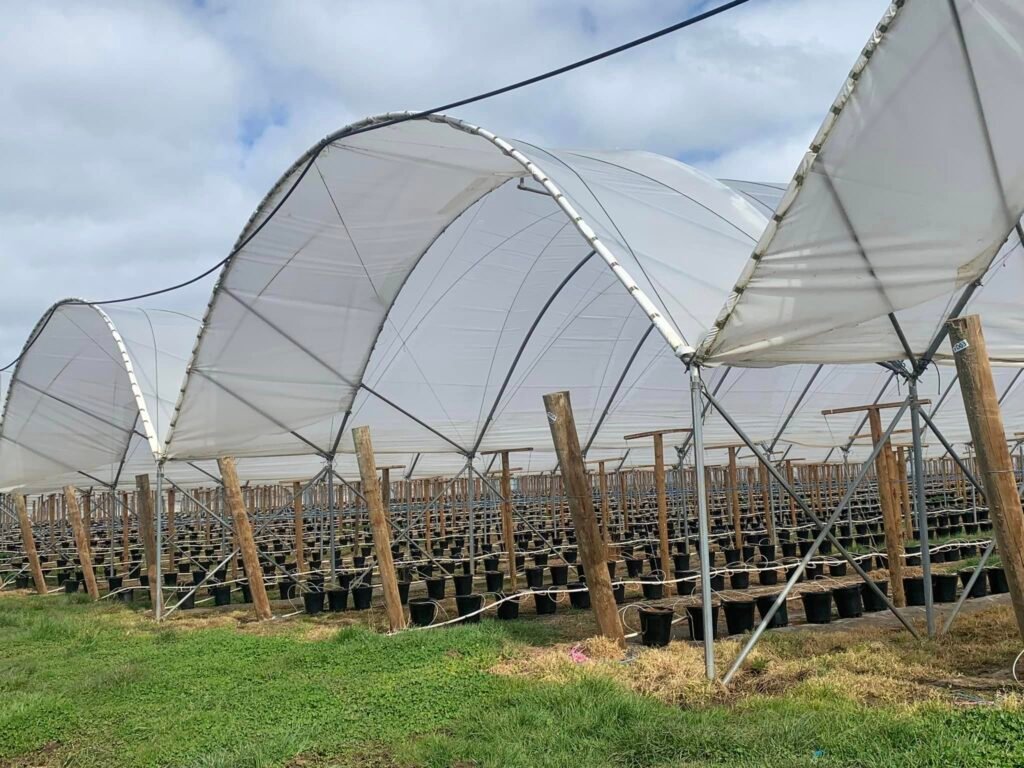
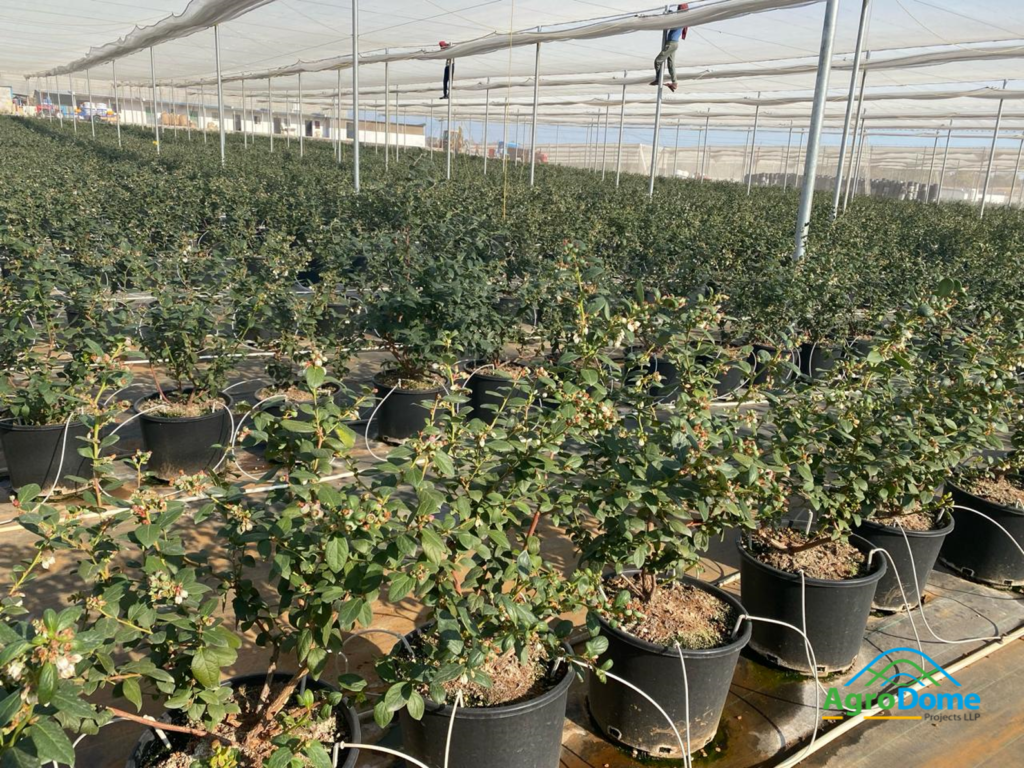
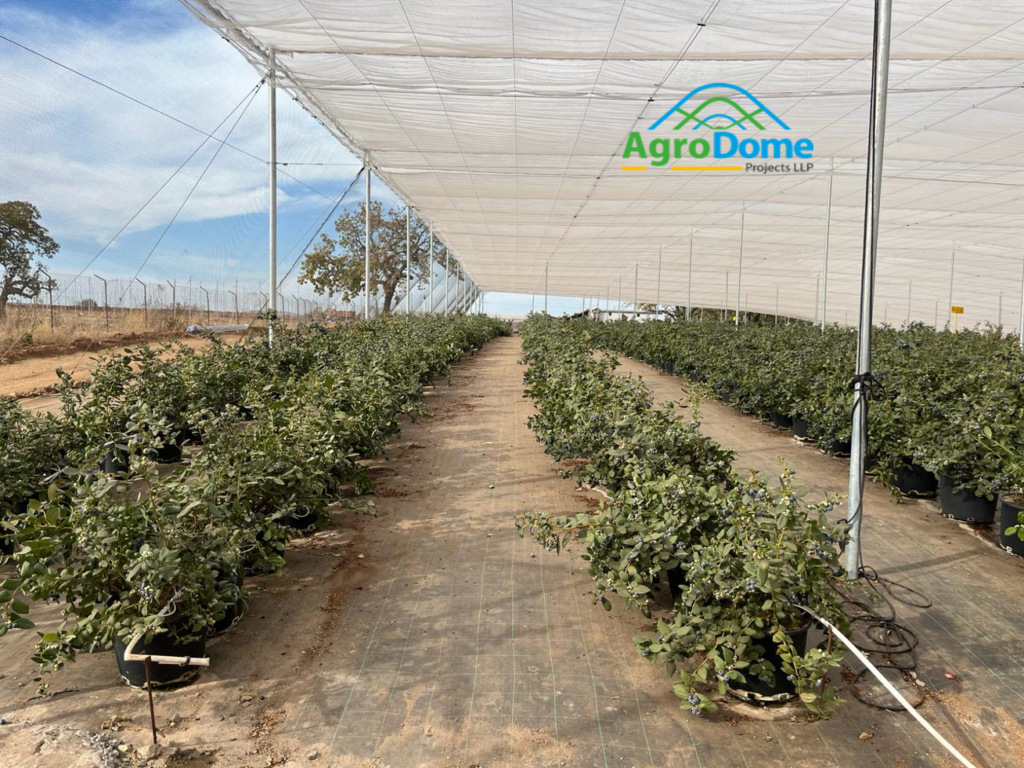
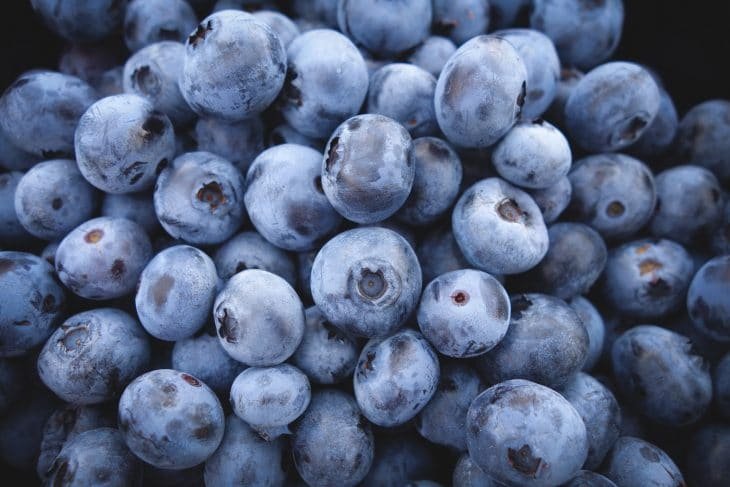

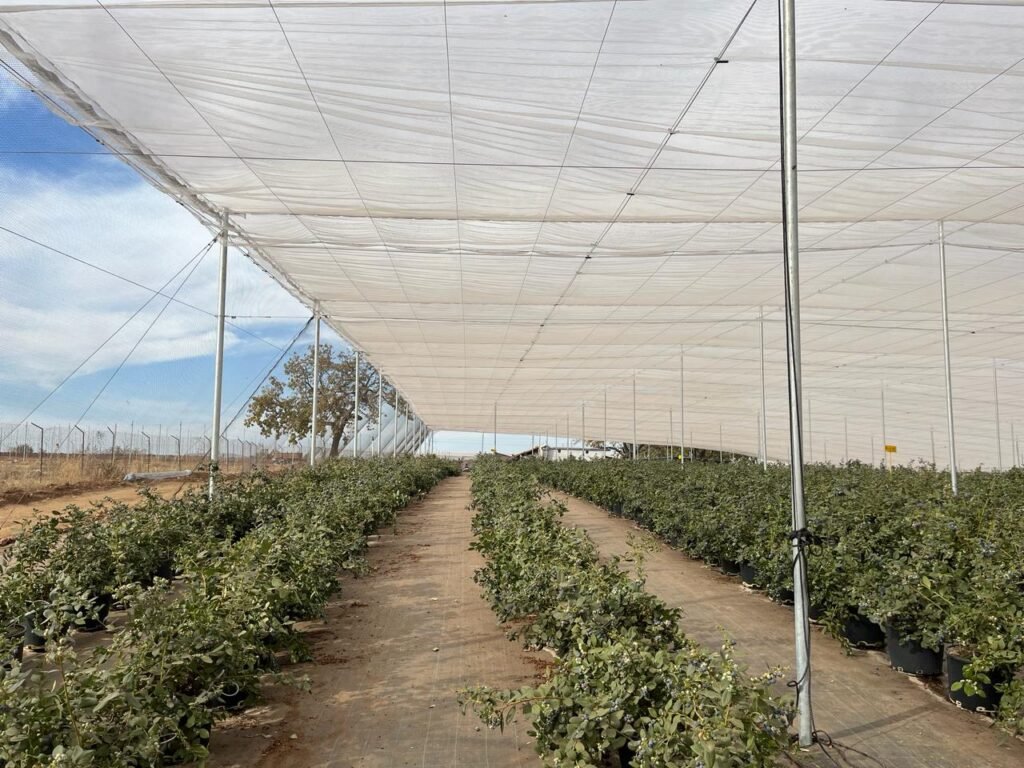
Successfully integrating high tunnels into blueberry farming requires careful planning and execution. Key considerations include:
- Site Selection: Choose a location with good sunlight exposure, adequate drainage, and protection from strong winds.
- Soil Preparation: Ensure the soil is well-drained and has the appropriate pH level (4.5-5.5) for blueberries. Incorporate organic matter to improve soil structure and fertility.
- Tunnel Construction: Select a high tunnel design that suits your farm’s needs and budget. Ensure the structure is robust enough to withstand local weather conditions.
- Irrigation System: Install a drip irrigation system to provide consistent moisture directly to the root zone, reducing water waste and promoting healthy plant growth.
- Crop Management: Regularly monitor plants for signs of pests, diseases, and nutrient deficiencies. Prune plants to improve air circulation and light penetration.
Conclusion
High tunnels are a powerful tool for blueberry farmers, offering numerous benefits that enhance productivity, fruit quality, and sustainability. As the agricultural landscape continues to evolve, adopting innovative technologies like high tunnels can help farmers stay ahead and achieve long-term success. By creating optimal growing conditions, protecting crops from adverse weather, and promoting sustainable practices, high tunnels can elevate blueberry farming to new heights, ensuring bountiful harvests and a brighter future for the industry.

